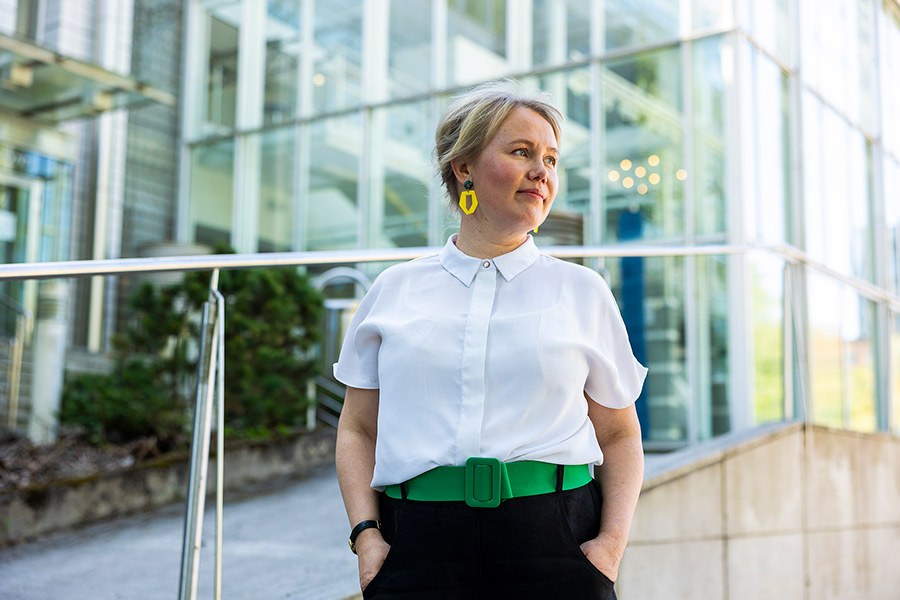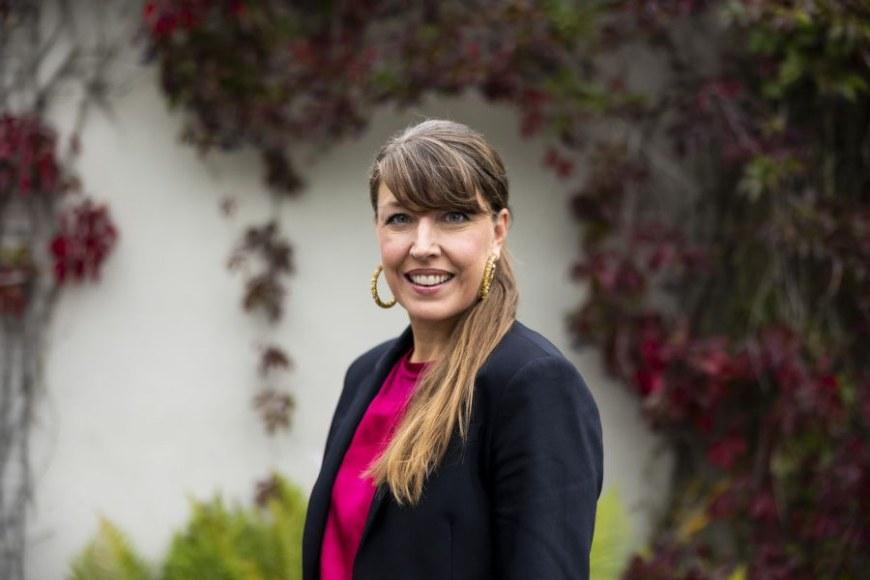Europe’s best health and social services developers meet in Tampere

How could health and social services be produced better? The Tesoma Wellbeing Alliance was one of the operating models presented at the event organised by the Transforming Health and Care Systems (THCS) project in Tampere on 22–23 May.
The Tesoma Wellbeing Centre in Tampere produces services using an alliance model based on private, public and third sector partnerships. The alliance is committed to jointly agreed goals, such as promoting the well-being of residents and the profitability of service production. In addition to a health centre, the same premises house, for example, a library and a community café.
“The model aroused a great deal of interest among the participants. The two-day event showed that we in Finland have much to learn from others, but also much to offer others,” says Sanna Tuurnas, who began working as Chief Specialist of the THCS project at Tampere University in May.
THCS is an extensive EU-funded partnership programme involving more than 60 organisations from 26 countries. The project, launched last year, seeks solutions for organising care and health services with higher quality and efficiency.
Tampere University’s role in the project is to identify ambitious models for producing health and social services based on partnerships between different actors, which could be benchmarked in other European countries.
“The health and social services systems of different countries are different, so the models cannot be transferred from one country to another as such. The THCS project aims to find solutions for how best practices and experiences could be utilised across different countries and systems,” Tuurnas explains.
New solutions to joint challenges
The THCS project is based on the premise that European countries are facing the same dilemma in healthcare and social services: populations are ageing and the need for services is increasing, but there is not enough money or staff to take care of everyone.
Tuurnas believes that the project has good opportunities to find new, functional solutions to these challenges.
“The participants include not only researchers and developers, but also a diverse group of high-level practitioners in the field. I believe that we will find solutions to the big questions of care and care systems and at the same time move forward in the ways we are learning together,” Tuurnas says.

In just over a year, the section led by Tampere University has found several examples where the provision of health and social services has been ambitiously renewed in cooperation between many actors. However, the work has only just begun.
“Next, we will collect more good models from Finland and the European partners. At the same time, we try to go a little deeper in these models and pinpoint what makes them particularly interesting,” Tuurnas continues.
Will the wellbeing services counties have time for development?
Sanna Tuurnas jumped into the THCS project from the University of Vaasa, where she worked as an assistant professor of public management. At the same time, she returned to her roots at Tampere University, where she completed the Master of Administrative Sciences degree in 2007 and a PhD in 2016.
"I have studied various partnerships, the roles of citizens, cooperation between professionals and networked practices in the provision of health and social services. I look forward with great enthusiasm and interest to being able to promote these issues in practice in cooperation with various actors,” she says.
According to Tuurnas, Finland is strongly involved in the development of new operating methods in the health and social services sector. She hopes that there will continue to be room for this work in the wellbeing services counties.
“Developing and advancing innovative models is laborious. If all the time and resources are spent on how to survive the current financial year, there may not be much of an opportunity for development work,” Tuurnas reflects.
The 7-year THCS Partnership Project is part of the EU’s Horizon Europe framework programme. In the period of 2023–2029, more than €300 million will be allocated to research and innovations in the care and health sector. Tampere University, the Finnish Institute for Health and Welfare (THL) and the Research Council of Finland represent Finland in the project.
Author: Virpi Ekholm






